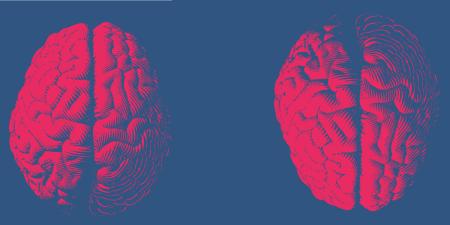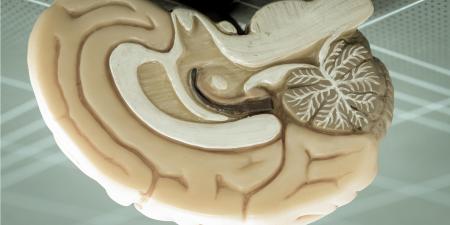Farah MJ. Emerging ethical issues in neuroscience. Nat Neurosci. 2002;5(11):1123-1129.
Farah MJ, Wolpe PR. Monitoring and manipulating brain function: new neuroscience technologies and their ethical implications. Hastings Cent Rep. 2004;34(3):35-45.
As our understanding of the brain and nervous system has advanced and as CNS treatments expand and improve, normal individuals have begun to use therapeutic treatments to enhance their existing capabilities. Neuroscientist Martha J. Farah has published 2 articles1 (1 with sociologist Paul Root Wolpe2) that start some meaningful conversations about the ethical issues raised by this developing practice as well as the growing use of brain-reading (translating neuroimages to psychological characteristics).
Neuroscience enhancements have been available for quite some time, and drug experimentation has long been a part of human history. Nonetheless, more effective CNS interventions have been recently produced, selective seratonin reuptake inhibitors (SSRIs) have diminished some previously nasty side-effects, and supplementary medications have been developed that effectively counteract others (ie, sildenafil for sexual dysfunction). Currently, CNS interventions are available in 3 general areas: appetites (sex, sleep, and hunger), mood, and cognition (attention and memory).3
The primary ethical concern involved in the use of neural interventions for enhancement is safety. While not entirely unique to neuroethics, safety (especially long-term safety) is of special concern in neuroethics for two interrelated reasons: (1) because "neuroscience-based enhancement involves intervening in a far more complex system [than other comparable elective treatments]"4 and (2) because of an increased likelihood of long-term use. For example, some individuals may use methylphenidate (Ritalin) to enhance attention for 40 or more years (their working adult life). The appropriate response to safety concerns is the deliberate completion of the appropriate research. Farah and Wolpe note, however, that, "drug safety testing does not routinely address long-term use, and relatively little evidence is available on long-term use by healthy subjects."4 Because many of these neural interventions are not intended to be used as enhancers, and research does not generally address long-term risks, the use of neuroscience-based interventions for enhancement will include unknown risks for the foreseeable future.
Farah and Wolpe initiate an important discussion about a constellation of ethical concerns centered on challenges to our conceptions of personhood and responsibility that are raised by the use of neuroscience-based interventions for enhancement. As they admit, these concerns are complex, and their discussion, not fully developed. For example, they offer the following: "Improving behavior pharmacologically seems to detract from the responsibility of the person for his or her own actions."3 This statement seems to assume (1) that individuals who are not enhancing their behavior pharmacologically have substantial control over their moods, cognitive abilities, and appetites, and (2) that pharmacological interventions diminish this control and, subsequently, individual responsibility. If these assumptions are true, Farah and Wolpe may be right. If individuals, however, can only marginally control their mood, etc., when compared to the control available through CNS interventions, then it seems we should hold them more responsible because now they are in better position to control their moods, cognitive abilities, and appetites. For example, we might hold a cigarette smoker more responsible for not quitting now that Zyban (a CNS intervention) has been shown to at least triple the success rate of individuals trying to quit smoking.
Wolpe and Farah also assert that, "Maximizing the performance capabilities of an already healthy, functional person can be viewed as commodifying human abilities."4 Yet, we already commodify human abilities and attempt to maximize performance (ie, paying to receive advanced training on the hopes of receiving more income; determining pay scales, in part, by type of degree and other qualifications). The difficulties Farah and Wolpe encounter in discussing these and other potential challenges to our conceptions of personhood and responsibility illustrate that we do not yet have an adequate grasp on whether or how the causal physiological processes of the brain affect psychological states and abilities. As our understanding of this relationship improves, the challenges, to our existing conceptions of personhood and responsibility will become more tractable, and the discussion of these challenges, more substantive.
Issues of personal responsibility also arise in Farah's discussion of court-ordered CNS interventions. Just as courts currently order anger management and parenting classes, and some convicted sex offenders are required to use antiandrogen treatments (which have been shown to lower serum testosterone levels and reduce recidivism), Farah asserts that safe and effective neural interventions may be used as punishment/ rehabilitation techniques.5 She notes that this will infringe on personal freedom, but that that alone does not raise a new ethical challenge.5 We regularly compromise freedom for concerns of public safety—convicted criminals are confined for long-term incarceration. Even so, the effects of neuroscience-based interventions demand caution in their application. The convict is free to react in thought and attitude to her condition however she chooses (insomuch as she can choose), but the same cannot be said for a medicated individual. Farah uses the following example to reflect this point: an individual may attend but ignore the content of an anger management class, but he cannot avoid the effects of a required neuroscience-based intervention.5 As Farah suggests, because court-ordered CNS interventions may illegitimately violate personal freedom to "think one's own thoughts," court-ordered uses of these interventions should be carefully considered and cautiously applied.
Farah and Wolpe spend a good deal of time discussing brain-reading and its possible applications. Brain-reading is essentially the attempt to accurately translate physiological activity in the brain (available through neuroimaging) into psychological information (eg, personal information, personality, and preferences). Though its potential, like that of genetics, appears limitless, its usefulness to date has been restricted by its diagnostic limits. Brain-reading only reliably distinguishes between groups and, in some cases, distinguishes the most extreme individuals with a given characteristic. For example, neuroimaging correctly distinguishes groups of recently detoxified cocaine addicts from non-addicts when they are shown drug-related pictures, but in one study that Farah and Wolpe cite, only half of the recently detoxified cocaine users could be identified individually.6 This uncertainty leads to the primary ethical concern about brain-reading—its over-application. Any attempt to apply brain-reading to individuals would provide information that has only "illusory accuracy."7 If/when brain-reading accuracy improves to the point of reliable individual diagnosis, it will raise serious concerns about privacy. Even an accurate interpretation of individual physiological data could be more revealing than necessary, and may undermine the individual's right to privacy.
In closing, let's note and expand on the ethical concern about equity raised by Farah in her earlier article. She foresees that neuroscience-based enhancements might not be distributed fairly.8 She responds to this concern by noting the number of inequities we leave untouched (and seem to endorse). What warrants some attention here is that there are limits to justifiable inequity, and effective neural interventions used for enhancement may breach them. An unequal distribution of educational opportunities already exists, and our market system generally pays less talented and less capable individuals less money. Given these existing structural inequities, any exacerbating effect of neural interventions should be discussed and evaluated explicitly.
Questions for Discussion
- Do you agree with the authors that our conceptions of personhood and responsibility are challenged by the use of neuroscience-based interventions for the enhancement of mood, cognitive abilities, and appetites? Do some of these interventions challenge our conceptions of personhood and responsibility more than others?
- Does the use of neuroscience-based interventions for enhancement exacerbate existing inequalities such that individual freedoms to use them should be limited?
- Should a physician participate in an individual's court-ordered involuntary CNS intervention?
References
- Farah MJ. Emerging ethical issues in neuroscience. Nature Neuroscience. 2002;5(11):1123-1129.
- Farah MJ, Wolpe PR. Monitoring and manipulating brain function: new neuroscience technologies and their ethical implications. Hastings Center Report. 2004;34(3):35-45.
-
For a recent discussion of ethical and social implications of cognitive enhancement, see Farah MJ, Illes J, Cook-Deegan R, et al. Neurocognitive enhancement: what we can do and what we should do. Nature Reviews Neuroscience. 2004;5:421-425.
-
Farah and Wolpe, 43.
-
Farah, 1126.
-
Farah and Wolpe, 38, 40.
-
Farah and Wolpe, 40.
-
Farah, 1125.



